'We actually have a problem because there may be too much activity in India.'
'Markets don't like too much concentration. But we are very happy with our collaborations in India.'
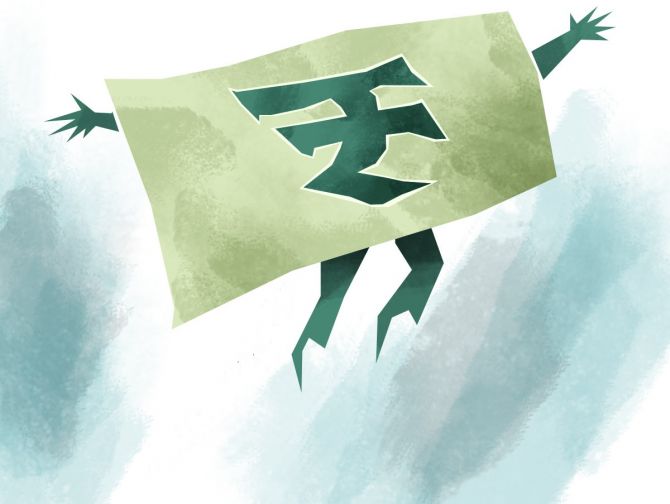
Amid rising tension between India and China, project funding by the Asian Infrastructure Investment Bank (AIIB) in India has not been affected.
Speaking on the sidelines of the Kautilya Economic Conclave, AIIB Chief Economist Erik Berglof tells Asit Ranjan Mishra/Business Standard that if anything AIIB has played a positive role in bringing India and China closer.
How different is the current economic turmoil that India and the world is experiencing from the past ones?
We are in a world which is very different after February 24.
Already the Covid pandemic had created a divergence between the advanced economies and developing economies.
That pattern was playing out particularly in access to vaccines, scarring in terms of unemployment and GDP growth; and scarring from education losses.
On February 24 onwards, on top of the existing inflationary pressure, we got new price rises of fuel and food stuff.
Also, we should not forget the impact of (rising) investments on defence.
For many years, since the Cold War, we have benefited from the 'peace dividend'.
We don't see any longer convergence between advanced and emerging economies -- that is a new feature of the world.
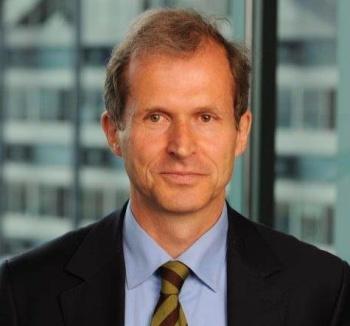
IMAGE: Erik Berglof, AIIB chief economist.
Photograph: Kind courtesy Andy Lane/Wikimedia commons
Are we heading towards yet another global recession and do you see it as a mild or strong one?
This is true for the advanced economies, it is not for sure, but it is more likely than not.
With rapid price rises, central banks have reacted now, which typically triggers a recession.
I don't think we are going to see a major recession like the global financial crisis.
It will be a recession of the more traditional type.
It may not necessarily trigger a financial crisis -- there is always a risk of that -- but that seems less likely at the moment.
If recession hits the developed world, how bad will its impact be on countries like India?
It will have a very significant impact, but I don't think you will see recession or anything we saw during the pandemic.
We should not forget the pandemic is not gone, it is coming back again with new variants.
We must not let our guard down when it comes to the pandemic.
The February event of Russia's invasion of Ukraine that you referred to has led to elevated inflation levels across the world. Do you see it as a short-term phenomenon or the world has to live with it for a longer period of time?
I am afraid we will have inflation at an elevated level for some time. But there is still some uncertainty how long it will last, perhaps into next year, that's the consensus.
What is your economic outlook for India?
We don't do frequent updates of individual economies.
I am quite positive about India's economic development.
India is indeed becoming a more important player in the global value chain.
The problem in India is that only a few states are involved in global value chains. It's not fully spread across countries.
You need to think about how to address it.
The real challenge for India is to broaden the number of states participating in global value chains, by improving infrastructure and productivity.
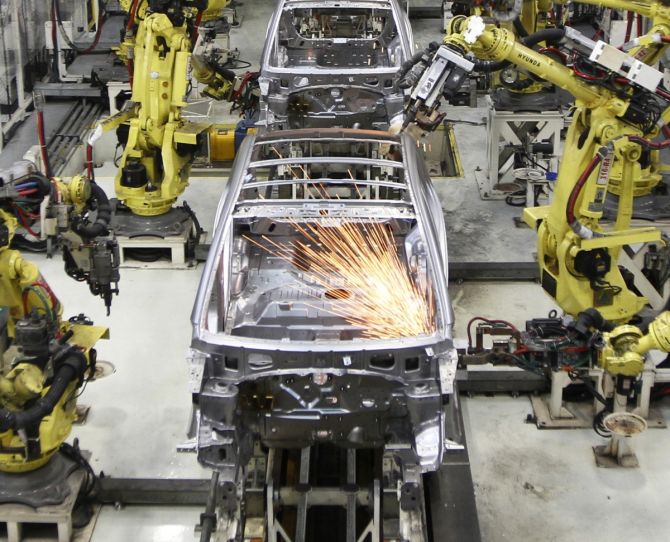
Among the developed world, AIIB is considered as another front for China to push the BRI (Belt and Road Initiative) projects and an effort to win bank the soft power credentials because of the backlash it has faced for its debt-trap diplomacy. Your thoughts?
First of all, we are not connected with BRI.
We were launched at about the same time, so people sometimes make that connection in their minds.
We have not done any BRI project. We can't do BRI projects because they are typically done with local standards, and we have to work with international standards.
Some of the backlash that has come to BRI has to do with the fact that they are done with local standards that are not good enough for complex international projects.
Are you saying AIIB will never be involved in any BRI project?
No, I am not saying that. We don't have a policy on BRI as such.
If there is a turnaround in BRI towards more international standards, it will be easier for us to do projects within that space.
The tension between India and China has increased in the past two-three years. Has it affected AIIB's functioning and project funding in India since AIIB is considered as a China-led bank?
This association of 'China-led bank' is unfortunate.
China has a quarter of shares in AIIB; Europe has another quarter; and more than half is for other countries.
Yes, the relation of India and China has been through some difficult times and through some difficult patches.
In that process of rebuilding the relationship between India and China, AIIB has played a positive role.
It has not affected our operations in India.
Our most important client by some stretch is India.
We actually have a problem because there may be too much activity in India.
Markets don't like too much concentration. But we are very happy with our collaborations in India.
Feature Presentation: Rajesh Alva/Rediff.com











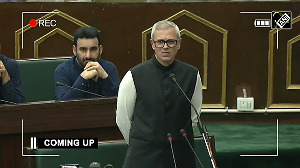
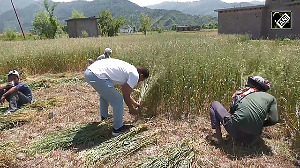
 © 2025
© 2025